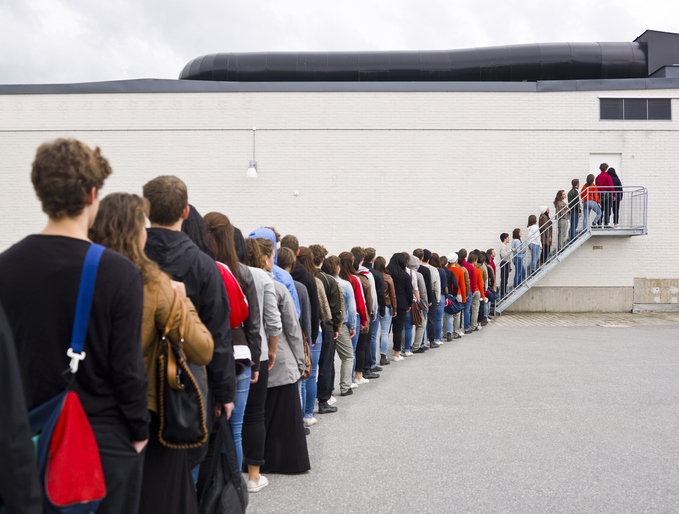In 1981, Tom Petty famously sang about the challenges of waiting, describing it as the hardest part. This sentiment finds resonance in contemporary research from The University of Texas, which delves into the underlying reasons for our struggle with patience.
Annabelle Roberts, an assistant marketing professor at Texas McCombs, has published two significant studies shedding light on the psychological tug-of-war that ensues when people find themselves in situations requiring patience, such as enduring long lines or anticipating crucial news.
Her research shows how the quest for closure is pivotal in impatience. The first study explores the influence of closure on decision-making processes, such as the preference for completing a task sooner rather than later. The second study investigates how individuals’ emotional states fluctuate during the waiting period, especially as the conclusion of the wait approaches.
With a PhD in behavioural science, Roberts is keenly interested in examining how impatience impacts decision-making, influencing choices between immediate gratification and future gains.
Roberts also provides insights into strategies marketers might employ to mitigate the irritation of waiting. She comments on the universal frustration experienced during waiting periods, highlighting the importance of understanding this phenomenon.
The need for closure is a critical factor that Roberts and her colleagues, Alex Imas and Ayelet Fishbach from the University of Chicago, identified as a cause of impatience. They demonstrate that a desire for closure significantly affects how individuals value immediate versus future outcomes.
Through a series of online and laboratory studies, the research illustrates that participants will expend more effort or money to achieve closure sooner. That could involve paying extra to settle a bill promptly or opting to work more for the same pay if it means completing tasks ahead of schedule. These findings suggest that the impetus behind impatience extends beyond a mere eagerness for rewards to include a desire to conclude pending goals.
These insights are precious for managers seeking to motivate their teams and marketers designing promotions. The aversion to the lingering stress of unresolved obligations may explain why specific marketing strategies, like those “buy now, pay later” offers, might not always be appealing.
In another study focusing on the emotional aspects of waiting, Roberts finds that the distress associated with waiting intensifies as the endpoint nears. That was observed in real-life contexts, such as the anticipation for the COVID-19 vaccine or public transportation arrivals, where frustration grew as the conclusion of the wait became imminent.
The research also touched on the heightened impatience surrounding the 2020 presidential election results, illustrating how the desire for closure can magnify the experience of waiting.
Roberts advises that managing customer expectations around waiting times can alleviate impatience. She suggests that companies might benefit from preparing customers for longer waits to avoid escalating impatience as deadlines approach.
Looking ahead, Roberts is exploring interventions to help individuals manage their waiting experiences more effectively. She aims to equip people with strategies to enhance their patience and make prudent decisions, such as saving for future needs. This work underscores a broader aim to understand and improve how we cope with the inevitable waits that punctuate our lives, offering practical and theoretical insights into the mechanics of patience and decision-making.
More information: Roberts, A. R., Imas, A., & Fishbach, A. Can’t wait to pay: The desire for goal closure increases impatience for costs, Journal of Personality and Social Psychology. DOI: 10.1037/pspa0000367
Journal information: Journal of Personality and Social Psychology Provided by The University of Texas at Austin








